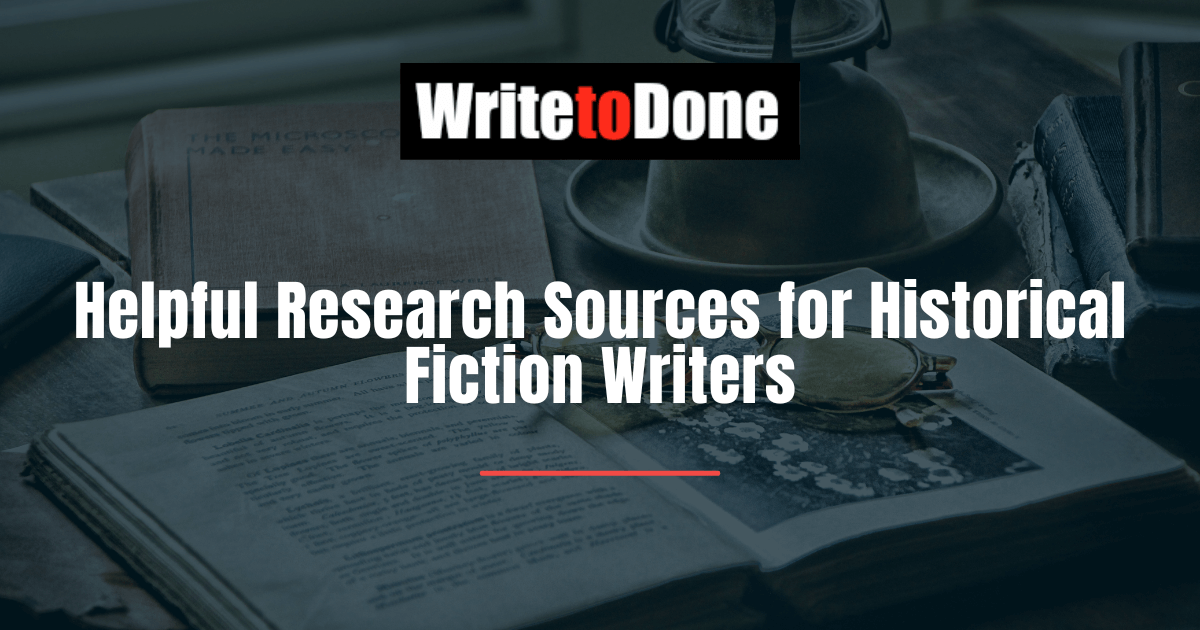Few things are as important for historical fiction writers as proper research.
To create an immersive story for the reader to get lost in, the author must present a convincing and detailed variety of information about the time in which their story is set.
Thankfully, researching historical fiction has never been easier. Without leaving your home, you can access a dazzling variety of historical research sources that would be the envy of authors from earlier times.
Whether you’re researching your next novel, or just want to get lost in enjoyable historical information, here are some of the most useful sources out there.
Project Gutenberg
To make your historical fiction as authentic as possible, you need to live and breathe the era of your story. One of the best ways to get as close as possible is to consume books written from that time.
Project Gutenberg is a superb source for older books. It’s completely free and has a wide variety of texts to absorb. A great feature of Project Gutenberg is the way it groups books into collections, known as bookshelves. These present a great variety of texts related to a particular topic.
Some useful examples for fiction authors include:
- Napoleonic. If you’re writing about the Napoleonic era, this collection is essential to browse. It contains a great mix of fiction and nonfiction related to the Naval War and Waterloo.
- Famous Scots Series. Looking for research material related to Scotland? Some of the most influential works about Scots ever can be found here, including ‘Sir William Wallace’ by Professor Murison and ‘James Watt’ by Andrew Carnegie.
- Mediæval Town Series. A detailed setting for your historical fiction tale is crucial. Gutenberg’s Mediæval Town Series lets you delve deep into towns including Cambridge, Constantinople, and Perugia.
- Historical Fiction Series. For many writers, succeeding in a genre requires reading widely within it. Gutenberg’s collection of historical fiction is fantastic. It’s organized into eras, dating from pre-Christian through to the early and mid 19th century.
If you want a mix of fiction and nonfiction to inspire your next novel, look no further than Project Gutenberg.
Online Museum Tours
Visiting a museum while researching a work of historical fiction is a truly enjoyable experience. Outside of time travel, it’s possibly the best way to get a sense of closeness to a particular era.
Sadly, it’s not always possible to visit all the museums we wish to. Whether for reasons of cost, travel, or time, we’re often forced to limit the number of our in-person visits.
More than ever, online museums are the next best thing. Some particularly useful ones for historical fiction authors include:
- British Museum. Enables you to search through over 2 million records. Covers an extensive range of time periods of interest to historical fiction authors.
- Vatican Museums. The history of the Catholic Church has proved to be a source of fascination for many authors of historical fiction. The Vatican Museum’s online collection is a great way to get inspired and informed.
- National Women’s History Museum. If you’re writing about American history, be sure to check out the National Women’s History Museum online.
Whether you limit your museum visit to online only, or end up getting inspired to take a real world trip, it’s well worth spending time browsing through these archives.
Primary Research Tools
Primary research can lend a richness and freshness to your historical fiction which is difficult to come by through secondary research alone.
In the past, it was harder to find relevant primary research opportunities. Nowadays, the whole world is at our fingertips. So what are some of the best resources for conducting primary research online?
- Quora. If you want to reach out to qualified people, Quora is the place to go. You can easily ask questions of subject matter experts.
- Social Media. Social media can be used for more than just vapidity. Sites such as Facebook have dedicated groups for particular events and interests. These can be great places to find relevant research opportunities.
- University Websites. Academics are often eager to assist interested people with their research. Finding departments related to a particular historical era, and contacting them, can often lead to fruitful primary research avenues.
Of course, primary research is more time consuming than secondary. But, if you can justify taking the time to carry it out, it can greatly enhance your next work of historical fiction.
Where Do You Research Your Historical Fiction?
If you’ve been feeling short of inspiration for your next historical fiction project, I hope the resources found here will prove to be useful.
It’s always a delight to discover a rich new vein of historical information to tap into. In that spirit, I kindly ask any authors of historical fiction reading this to leave a comment.
Where do you like to research your work online? Do you know of any gems for your fellow authors to enjoy?
















